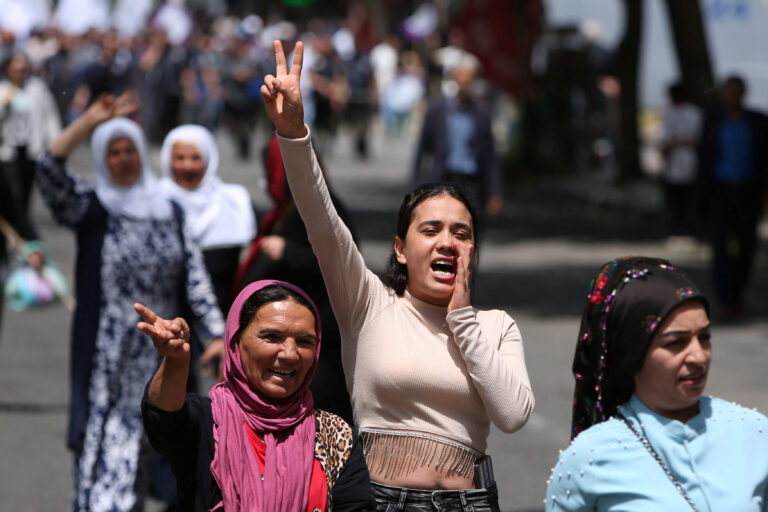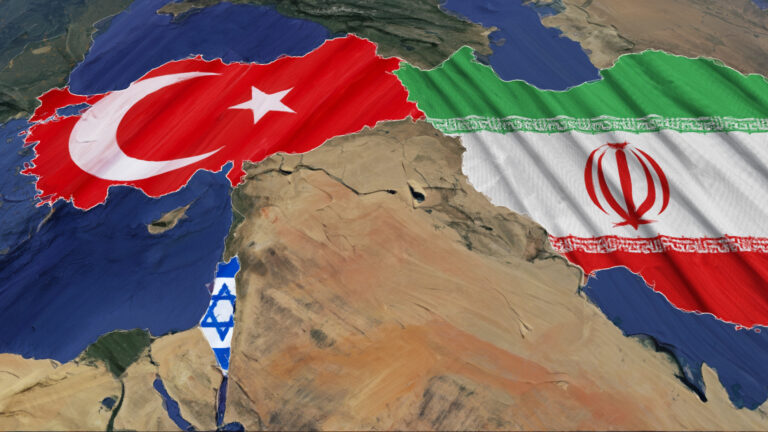Nearly seven months since the major earthquakes in southeastern Turkey on February 6, 2023, the Hatay province continues to struggle with major problems such as housing and shelter, access to health care and education, and access to transportation. The region remains under a cloud of dust due to the large piles of rubble that have yet to be cleared. Soaring summer temperatures have rendered both tents and container housing uninhabitable. The future of Hatay and its inhabitants remains unclear. Medyascope spent two days down in the earthquake’s most heavily-hit province to assess where things stand with the area’s residents.

The February 6 events inflicted major damage on the Hatay province, with thousands of residents killed, hundreds injured, and dozens still unaccounted for. The province’s capital Antakya, a city with a history dating back thousands of years, was nearly flattened. Aftershocks two weeks later on February 20 damaged the city even further, bringing down many buildings that had been damaged but not destroyed by the original tremors. In the nearly seven months since the quakes, some 400,000 residents have left the city. Many who have remained in the city live in subpar conditions. The majority of the temporary housing was constructed immediately post-quake in the depths of winter, making it unsuitable for the soaring summer temperatures currently affecting the city. Many temporary shelter areas are also affected by pests such as bugs, snakes, and mice.

Transportation within the city also remains an issue. While those with an automobile are now able to reach most areas, vehicles belonging to many residents were covered under rubble and destroyed in the original quakes.
With the school year approaching, education remains another question mark. Institutions such as the police and governor’s office still have not emptied schools undamaged in the quake, in anticipation of an expected learning situation this fall that will require Hatay children to travel long distances to attend school in other districts. Many Hatay families will have neither the funds to pay for school transportation fees, nor pocket money for their children. The majority of city residents who remain are unemployed. Besides working at the portable kebab stands around town, jobs in Hatay are nearly impossible to come by. A half-a-year into the crisis, the resources of aid and relief organizations have been nearly exhausted. Displaced residents are required to provide for their basic needs mostly on their own.
Mustafa Masatlı, Hatay’s recently appointed governor, recently announced a decision to clear the tent camps housing quake survivors as soon as possible. While the idea may sound appealing at face value, major logistical questions remain about the implementation of such a plan. Many tent residents are reluctant to move far away from their homes, gardens, and animals to government-provided housing. In Hatay, a province known for its ethnic and religious diversity, many locals also wish not to distance themselves from their unique cultural communities. The notion of moving far away to an unknown area with strangers is by and large unappealing, even for Hatay’s worst-affected residents.

The situation is even worse for Hatay’s Syrian refugees. Many reside in tents they constructed themselves with subpar hygienic conditions. A common sentiment among Syrian refugees in the city is “The Turkish government helps the Turks, and gives them such things as refrigerators and laundry machines, but they give us nothing.” Brewing tensions between Syrians and non-Syrians in the city, driven in part by such rumors, threatens to erupt into open conflict.

Another group still staying in temporary tent housing is the Roma of Kırıkhan, a district of Hatay just north of the capital of Antakya. Members of this group are currently concerned about a plan recently announced to move their tent camp to another area. Scorpions are known to inhabit the area where the group will be resettled, and they have concerns existing residents who practice animal husbandry will negatively view the Romas’ move to the area. Health problems related to unhygienic living conditions have also afflicted the Roma group, especially children. Irregular access to water makes regular showering difficult.
Indeed, water is the biggest issue currently faced by Hatay. Problematic from the very beginning, the province’s issues with water access do not appear that they will be solved anytime soon. Much of the province’s tap water infrastructure was heavily damaged during the quake, and access to drinking water remains a major issue. As temperatures have soared in recent weeks, many tent camps in Hatay have seen massive lines as residents queue up and wait to access drinking water. Recent efforts by the local municipality and the Turkish Workers Party (TİP) to solve Hatay’s water issues appear to be insufficient.
It remains unclear how the plethora of issues facing Hatay will eventually be solved. What appears certain, though, is the province will continue to experience mass emigration to other areas and steep population decline as long as the basic needs of residents fail to be met.
It is not clear how these problems will be resolved, but one thing is certain that the people of Hatay, who have the opportunity, can leave the city one by one. Because right now, Hatay cannot provide a humane living condition to its citizens.
Medyascope'un haftalık e-bülteni
Andaç'a abone olun
Editörlerimizin derlediği öngörüler, analizler, Türkiye’yi ve dünyayı şekillendiren haberler, Medyascope’un e-bülteni Andaç‘la her çarşamba mail kutunuzda.












